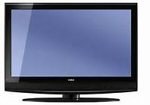Outlook network without MS Exchange Server (shared PST)
To share contacts, calendars inboxes or tasks, is one of he most important functions of groupware solutions. Untill now it was not possible without a MS Exchange server to use Microsoft Outlook together in a network to share these information's and functionality directly in MS Outlook with every rights. The program \"WorkgroupFolders for Outlook\" supplies this alternative access. As base, the WorkgroupFolders use here a common Outlook data file (PST). This programs share not only contacts or dates, it shares the hole Outlook PST file.
Whether it concerns now contacts, dates, functions or post office inbox, a central enterprise further accesses to an Outlook structure is possible with this program.
All co-workers can use the same contacts. Each co-workers can see who has which date or who is busy with which task.
They have all functionalities on this central Outlook as in a personal Outlook file. Write rights, reader-genuine or rules assistant. All built-in functions are preserved also in the \"Public Folder\". The existing Outlook network does not have to be modified. That means, with WorkgroupFolders a networking can be also implemented with different Outlook versions.
The \"WorkgroupFolders\" is not a synchronisation program, it is a \"Store Provider\" like MS Exchange Server.
A synchronisation program for Notebooks and Home workstations is implemented at present and in addition, an integrated Mailserver also for internal and external Emails.
Also for Lotus Notes or Novell GroupWise users, who would like to change to Outlook, is this an interesting solution. The largest installation is at present 37 Users who works with one central Outlook data file.
Almost everything, for the Exchange server developed Add-ons, can be integrated also in the WorkgroupFolders.
WorkgroupFolders for Outlook 1.8o1 was released by SDMD GmbH on Friday 26 July 2002. Its known requirements are : 233 MHz, 64 MB, 30 MB Free Hard Disk.
WorkgroupFolders for Outlook will run on Windows 95, Windows 98, Windows Me, Windows 2000, Windows NT and Windows XP.


